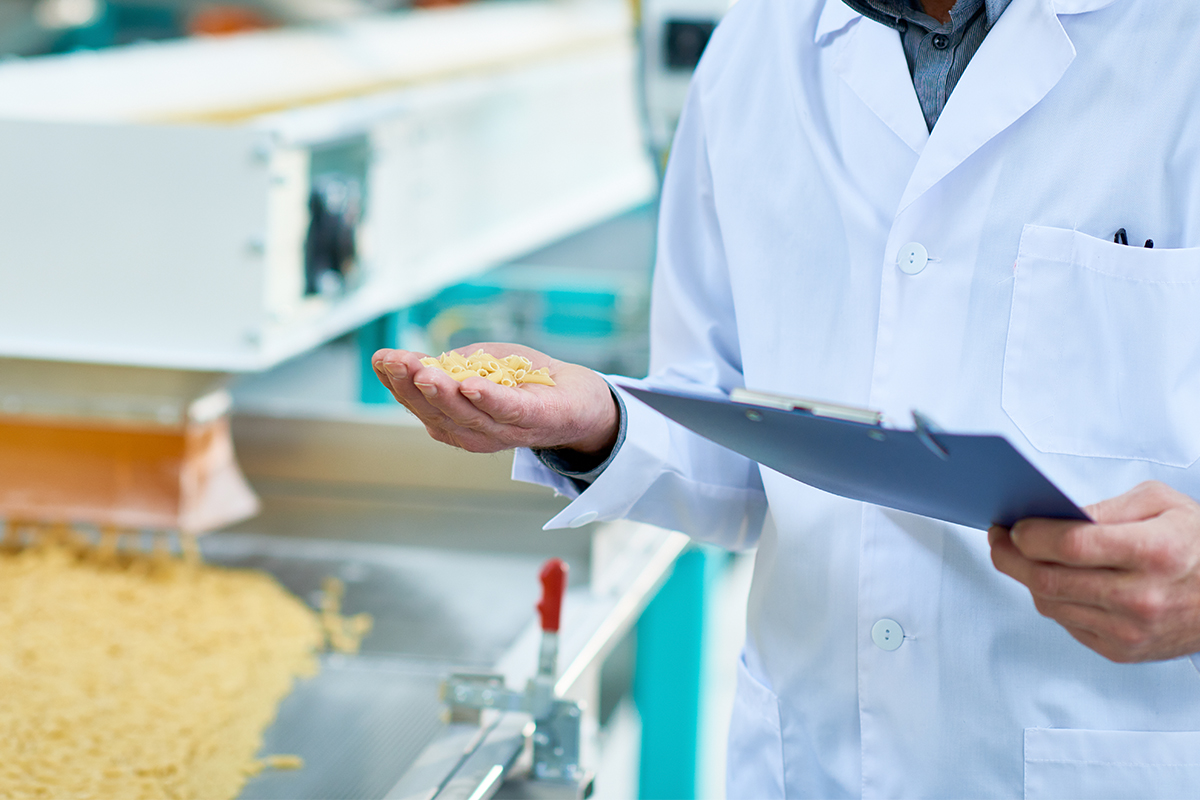Last Updated on February 17, 2025 by Admin
Table of Content
- What is quality assurance in food industry?
- Examples of Quality Control in the Food Industry
- Quality Control vs Quality Assurance in Food Industry
- The role played by the quality assurance
- Separate steps to follow
- Now for the tool in question
- The help of a comprehensive system
- The ultimate backbone of the food industry
- Join hands with the quality assurance managers
- Conclusion
Quality consists of many elements and it is really difficult to define one. In most layman’s terms, it helps in describing the satisfactory and value state of the product, but it is also a complex concept that includes multiple facts, and most of them are proven to be subjective. There are three major points that you have to consider when it comes to quality and those are:
- Customer expectations
- Product characteristics and performance
- Value for money
Product performance and characteristics like the microbiological, chemical, and physical profiles of the product along with the compliance to product specifications are some of the measurable features to consider. On the other hand, the customer’s expectation of texture, color, taste, smell and other eating characteristics will vary from one item to another. So, meeting all these points can be quite challenging and that’s when quality assurance in food industry comes to the rescue.
Our team from FICSI is here to let you know more about quality assurance and the importance it holds in the food industry. Check till the end of the blog to learn more.
What is quality assurance in food industry?
The role played by the quality assurance:
The primary role of the Quality Assurance or QA department is to ensure that all the quality parameters are met with necessary requirements like internal or external standards, customer, legal and more.
- It should match with the continuous goal of maintaining and improving the present quality, keeping track of the record, reporting, problem hunting, and solving.
- The ultimate goal over here is to ensure that a safer and higher-quality item is delivered to the chosen customer.
Examples of Quality Control in the Food Industry
Separate steps to follow:
QA is equivalent to the term “safety” and cannot be placed otherwise. It consists of multiple steps alongside a comprehensive controlling mechanism. We at FICSI are ready to help share these steps with you for better food quality management, especially if you want to work in the food processing industry later in life.
- At first, it starts by crafting a plan as per the QA management system. It is a vital step and needs to be taken care of with proper consideration.
- The plan is subject to be pretty unique for each one of the manufacturers. So, it is mandatory to tailor-make the plan perfectly.
- This section will not just include inspections, but testing and monitoring of the activities as a major part of the quality control mechanism.
- It should further control added activities, designed to prevent any form of food safety hazards and quality defects at the same time.
Now for the tool in question:
The most common tool used in the food manufacturing sector is the HACCP system, and we at FICSI have special courses on that. This tool will provide the QA managers with the chance to recognize the processes in a step-by-step module.
- The tool further helps in identifying the major points.
- It helps in preventing any form of potential hazards before their occurrence.
- Whenever things go south, the HACCP principles will help you to identify the action points.
- Even though the primary focus of the HACCP system will be on food safety, it is also fundamental for checking the current product quality.
The help of a comprehensive system:
The comprehensive food quality management system or the QA system will help you to get better control over your raw materials, processes, suppliers, and even the quality and safety of the final finished items. It is further possible to validate methods of the control mechanisms, which can further mitigate the hazard, and then verify them with other forms of monitoring approaches around here.
The ultimate backbone of the food industry:
It is not that hard to state that QA is the primary backbone of the food manufacturing sector. It is a known fact that food has a direct effect on health and can also prove to be lethal in case you are not able to follow the proper protocol.
- Maintaining proper quality ensures that you can be confident in delivering safe and consistent products to match your consumers’ demands.
- Some of the major steps of QA food manufacturing will include regular GMP audits for monitoring site standards, an inspection of the finished item via sampling, and microbiology testing of the materials.
- On the other hand, a thorough sanitation process is focused on with swabs taken to help indicate the cleanliness of the place and the hygienic quotient of the food manufacturing area.
Building a trustworthy relationship with your customer through consistency is the major key. It helps our food business to remain a step ahead of your competitors. On the other hand, it helps in creating a loyal relationship between you and the customer out there.
A promising and successful QA system must always let the companies sell items with few worries. It helps in minimizing the current economic loss and enhances the safety quotient to a completely new level.
Thanks to proper QA, a food business will have clear traceability and get empowered to detect the issues and even prevent accidents before they can even take place.
Learn about these points with FICSI along with the course modules we have ventured for you.
Quality Control vs Quality Assurance in Food Industry
Join hands with the quality assurance managers:
The responsibilities of a QA manager are subject to vary from one business to another and also depend on the company’s scale. In bigger firms, a QA manager focuses on crafting guidelines to assure proper quality and also ensure that quality control tasks are proficiently followed.
In case you want to play the role of a QA manager later in life, we would like you to be a part of our quality assurance courses, straight from the house of FICSI. We are ready to help you shape up a career with a great payment scale later.
To learn more about the different food industry-related courses we have, visit FICSI now.
The role of quality assurance in food industry
The primary role of the Quality Assurance or QA department is to ensure that all the quality parameters are met with necessary requirements like internal or external standards, customer, legal and more.
- It should match with the continuous goal of maintaining and improving the present quality, keeping track of the record, reporting, problem hunting, and solving.
- The ultimate goal over here is to ensure that a safer and higher-quality item is delivered to the chosen customer.
Different step of quality assurance in food industry
QA is equivalent to the term “safety” and cannot be placed otherwise. It consists of multiple steps alongside a comprehensive controlling mechanism. We at FICSI are ready to help share these steps with you for better food quality management, especially if you want to work in the food processing industry later in life.
- At first, it starts by crafting a plan as per the QA management system. It is a vital step and needs to be taken care of with proper consideration.
- The plan is subject to be pretty unique for each one of the manufacturers. So, it is mandatory to tailor-make the plan perfectly.
- This section will not just include inspections, but testing and monitoring of the activities as a major part of the quality control mechanism.
- It should further control added activities, designed to prevent any form of food safety hazards and quality defects at the same time.
Different tools are used in quality assurance
The most common tool used in the food manufacturing sector is the HACCP system, and we at FICSI have special courses on that. This tool will provide the QA managers with the chance to recognize the processes in a step-by-step module.
- The tool further helps in identifying the major points.
- It helps in preventing any form of potential hazards before their occurrence.
- Whenever things go south, the HACCP principles will help you to identify the action points.
- Even though the primary focus of the HACCP system will be on food safety, it is also fundamental for checking the current product quality.
Comprehensive quality assurance management system
The comprehensive food quality management system or the QA system will help you to get better control over your raw materials, processes, suppliers, and even the quality and safety of the final finished items. It is further possible to validate methods of the control mechanisms, which can further mitigate the hazard, and then verify them with other forms of monitoring approaches around here.
The ultimate backbone of quality assurance in food industry
It is not that hard to state that QA is the primary backbone of the food manufacturing sector. It is a known fact that food has a direct effect on health and can also prove to be lethal in case you are not able to follow the proper protocol.
- Maintaining proper quality ensures that you can be confident in delivering safe and consistent products to match your consumers’ demands.
- Some of the major steps of QA food manufacturing will include regular GMP audits for monitoring site standards, an inspection of the finished item via sampling, and microbiology testing of the materials.
- On the other hand, a thorough sanitation process is focused on with swabs taken to help indicate the cleanliness of the place and the hygienic quotient of the food manufacturing area.
Building a trustworthy relationship with your customer through consistency is the major key. It helps our food business to remain a step ahead of your competitors. On the other hand, it helps in creating a loyal relationship between you and the customer out there.
A promising and successful QA system must always let the companies sell items with few worries. It helps in minimizing the current economic loss and enhances the safety quotient to a completely new level.
Thanks to proper QA, a food business will have clear traceability and get empowered to detect the issues and even prevent accidents before they can even take place.
Learn about these points with FICSI along with the course modules we have ventured for you.
Join hands with the quality assurance managers:
The responsibilities of a QA manager are subject to vary from one business to another and also depend on the company’s scale. In bigger firms, a QA manager focuses on crafting guidelines to assure proper quality and also ensure that quality control tasks are proficiently followed.
In case you want to play the role of a QA manager later in life, we would like you to be a part of our quality assurance courses, straight from the house of FICSI. We are ready to help you shape up a career with a great payment scale later.
To learn more about the different food industry-related courses we have, visit FICSI now.
Read Also – The Crucial Role of Quality Control in the Food Industry













